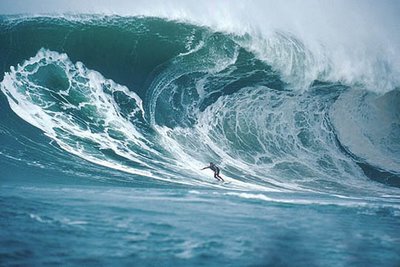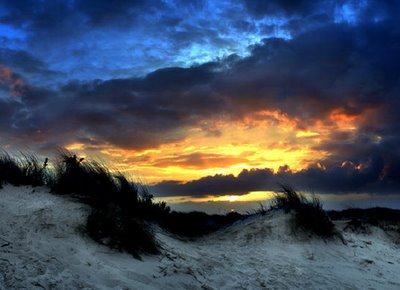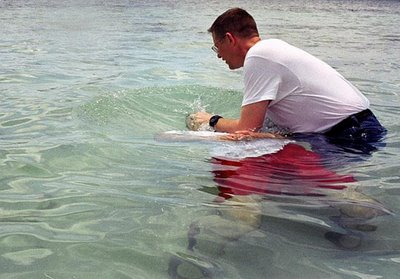Dogmatics

NOTES ON LEGACY
My totem fish-dicked daddy no
More survives in my real blood
Than the blue gospel I say he
Wrote at the bottom of blue time.
So many sons and fathers
Wind back to him on a
Trail as broken and lost
As yesterday’s spent rollers;
So many texts were burned or
Overwritten or simply lost
For good, tossed to one
Cold surmounting wave.
I am no more he than these
Lines are the surge he rides
In pure profanest joy;
And yet, my darkest legs enclose
A fish who dove so deep
Blue scripture surfaced in my sleep.

THE LITANY OF SHORE
In The Secret Book of James, Jesus comes back a year and half after he departed, explaining that he had not actually removed himself from his disciples. He then invited James and Peter to travel with him to heaven, perhaps in the kind of ecstatic trance that John of Patmos said he experienced before he wrote the Book of Revelation. First Jesus separated them from the others and privately explained that they could join him not only after death but also here and now, by becoming “full of the spirit” {Apocryphon of James 4:19, in NHL 31}. But instead of urging his disciples to simply follow him, here Jesus encourages them to surpass him. He explains that those who suffer and overcome the fear of death may “become better than I; make yourselves like the son of the Holy Spirit. Be zealous, and if possible, arrive (in heaven) even before I do.” (ibid 5:19-20)
-- in Eileen Pagels, Beyond Belief: The Secret Gospel of Thomas
THE LITANY OF THE SHORE
We made the door a cross
Which barred the way on through,
A symbol not of death but
Our sempiternal fear of it,
Grounding every rite and prayer
Ever six feet short of shores
Susurrant with blue heaven.
Why can’t we come to love
Our blood’s salt mystery
And breach those walls set hard against
The tides of sweet low evernight?
In the Secret Book of James
Jesus invited James and Peter
To join him in this heaven,
First by suffering the fear of death
And, by doing so, remit the cross.
“Be zealous for blue mash of waves,”
He smiled. “The crashing shore’s my host.”

DOGMA
Irenaeus undertook his massive, five-volume Refutation and Overthrow of Falsely So-Called Knowledge precisely because he know many people might find his conclusions far from obvious .. While his opponents say he reads only on the surface, he replies that all of them say different things; not one of them agrees with another, not even with their own teachers; on the contrary, “each one of them comes up with something new every day,” as do writers and artists today, for whom originality is evidence of genuine insight. For Irenaeus, however, innovation proved that one had abandoned the Gospel. The problem he faced, then, was how to sort out all those lies, fictions, and fantasies. How to distinguish the true from the false.
Irenaeus says that there is only one way to be safe from error: Go back to what you first learned, and “hold unmoving in (your) heart the canon of truth received in baptism.” He assumes that his audience knows what this canon is: “The faith which the church, even when scattered throughout the whole world ... received from the apostles.”
-- Eileen Pagels, Beyond Belief: The Secret Gospel of Thomas, quoting from Irenaeus Libros Quinque Adversus Hareses 1.9.4
DOGMA
My spirit’s gospel blue: how then
To discern its uteral truth
When so much is mere chatter,
A brain’s moon-chemic drone
While all the world’s asleep?
It’s not a matter of first sources
As much as how they washed clean
Through me, there off Melbourne Beach
When I was near fourteen, the
Minister above pushing me through
A door where something pulled me
Into thralls far greater than
All Christendom, a wreck forever
Just offshore the known and purely loved.
My dogma’s in the heart of waves,
Beneath their pulsing rise and fall,
A wilderness inside the thundering,
Blue shores under all shoring.


<< Home